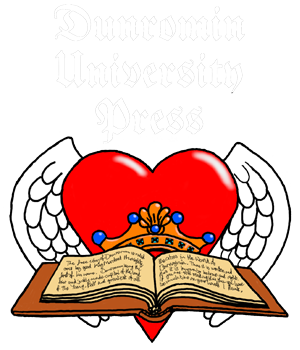Thinking Aloud - Do Spells have Alignments?
Dated: 30 Jan, 2020
By the book the various spells listed in the core rules and innumerable supplements and magazine articles ever since are simply tools in the Magic-Users tool-box. They don’t have personality, ego, options or emotions. You pick up the hammer, you hit something with it, and then you put it away again.
Fair enough.
But some spells are very powerful. They link into extra-planar or other deeply magical forces of the Multiverse. Surely, that must count for something? In a lot of Fantasy Fiction, from Harry Potter to the Colour of Magic, spell books are changed by their contents. Spell books become animated entities, sources of strange effects, portals through which strange entities act.
But why?
This line of questioning started with the Wish Spell:
I was thinking about the use of a Ring of Wishing one of my victims, erm, I mean players had. Now the core rules encourage the DM to be inventive, pernicious and cynical in their completion of any wish their players might try. The wording and interpretation of wishes is a really fun part of the game. Or infuriating.
Anyway, I wanted this Ring to be particularly vicious and perverse in its interpretations of the working of the player’s deepest desires and I got to wondering why? How did this ring, ostensibly created using the same impersonal magic as every other ring, become so particularly nasty, cruel even. Well, obviously I supposed, the person who made it was particularly nasty and cruel.
This opened up a whole separate stream of consciousness about why anyone would go to such extreme measures as making one of the most potentially powerful items in the Multiverse just to annoy some unknown person at some point in the future, but that’ll be a different blog post…
So if Wishes can mirror some of the personality of the caster, why not other spells?
Looking at the nature of the spells that have been written down one can guess certain key elements of their creator’s personality by the way in which the spell works and the specifics of its effects. Why wouldn’t the enchantment reflect this in a more implicit way: what if the spell itself was entwined with the alignment of its creator or its own basic nature, in some way?
Several thoughts come to mind:
Why bother?
If they do, so what?
How might this manifest itself?
So, in order then, why bother? Well, why not? Anything to complicate matters for the PC and make beating the monsters difficult has to be good fun right? Perhaps you can restrict the power of high level NPCs this way – make them a bit more manageable. Could a Good Cleric use an Evil spell? It might even just be fun thinking about it.
If spells do have alignments, so what? Well, it adds another layer to the character of the magic in your campaign. In most FRPGs magic is a set of simple incantations designed to do certain things. You cast them, the effect happens. Pow! Well, that’s a bit dull isn’t it?
Magic is supposed to be this amazing and super-natural force, alien, dangerous and powerful. But in FRPGs they are, like I said at the start, merely tools. There’s no mystery to them, no intrinsic peril (other than using Fireballs in confined spaces) that might make the caster think twice about using them.
By giving spells a basic alignment you can sow discord into the relationship the Mage or the Cleric has with their spells. Some might be off-limits, some might have their effects curtailed. To a certain extent this is already acknowledged: Reversible Cleric spells are off limits or mandatory to certain casters on a basis of alignment. Why not take this one step further?
How might this idea manifest itself? Well, you might already be thinking up your own problems and consequences but let’s start with basic implementation. What spells would have alignments and why?
Well, there is a risk here of building a ridiculous level of complexity into everything and changing the fundamentals of the games we love, so don’t change everything immediately. It strikes me that most spells, if they were aligned, they would be Neutral. Also, even if they were Good or Evil, would they necessarily have the power to manifest that inclination?
Certainly I can see no real benefit in aligning the less powerful spells. Except for certain obvious exceptions I wouldn’t even think about spells below 5th level. Only at this level are spells routinely using great powers and calling upon powerful entities to complete their effects.
Having said that, the nature of the game is that spells are tools, and tools can be used by anyone, any time. Tools don’t fix things, people fix things, the spells are not autonomous and cannot cast themselves. So it seems to me that all spells have an element of Neutrality about them and the majority will be True Neutral. So this limits us to just the various Neutral alignment mixes. That’s still some interesting possibilities.
So I picked up my ancient copy of Unearthed Arcana (complete with burnt corners – long story) and this is what I came up with, although I should say I have no idea how this might affect play yet:
Any Curse – Neutral Evil
Protection and Healing Spells – Neutral Good
Animate Dead – Neutral Evil
Most Illusion-style spells – Chaotic Neutral
Golem, Conjure Elemental and similar faithful/servant entity generating spells – Lawful Neutral
Maze, Imprisonment, Hold Spells and anything that traps someone or otherwise removes their freedom – Neutral Evil
Anything that causes the victim to behave in a way alien to their nature – Chaotic Neutral
Resurrection, Raise Dead and so on – railing so dramatically against the laws of nature heedless of consequence they simply must be Chaotic Neutral.
Wish – which brings us full circle. A normal Wish, I would suggest, is Chaotic Neutral. They are determined to fulfil their function but only in the most tortuously awkward way. Perhaps the Ring I originally started with would be aligned Neutral Evil instead – deliberately doing what it was asked in the most nasty, inconvenient and dangerous way it can get away with. Which perhaps begs the question, could you get Neutral Good wishes as well? Such a thing might be keen to please in any way it can.
There’s only a few here. Most of the spells are really Neutral, but if they weren’t, how might this confuse and embarrass your PCs do you think? And might that be fun?
Of course Swords can be intelligent and have alignments and all kinds of things, and I know of many DMs who have extended this to powerful non-sword weapons as well. Surely other powerful magic items could have the same options associated with them? How about a Chaotic Neutral Wand of Wonder? A Lawful Good Bag of Holding? Hmmm. Now that needs some further thought…



